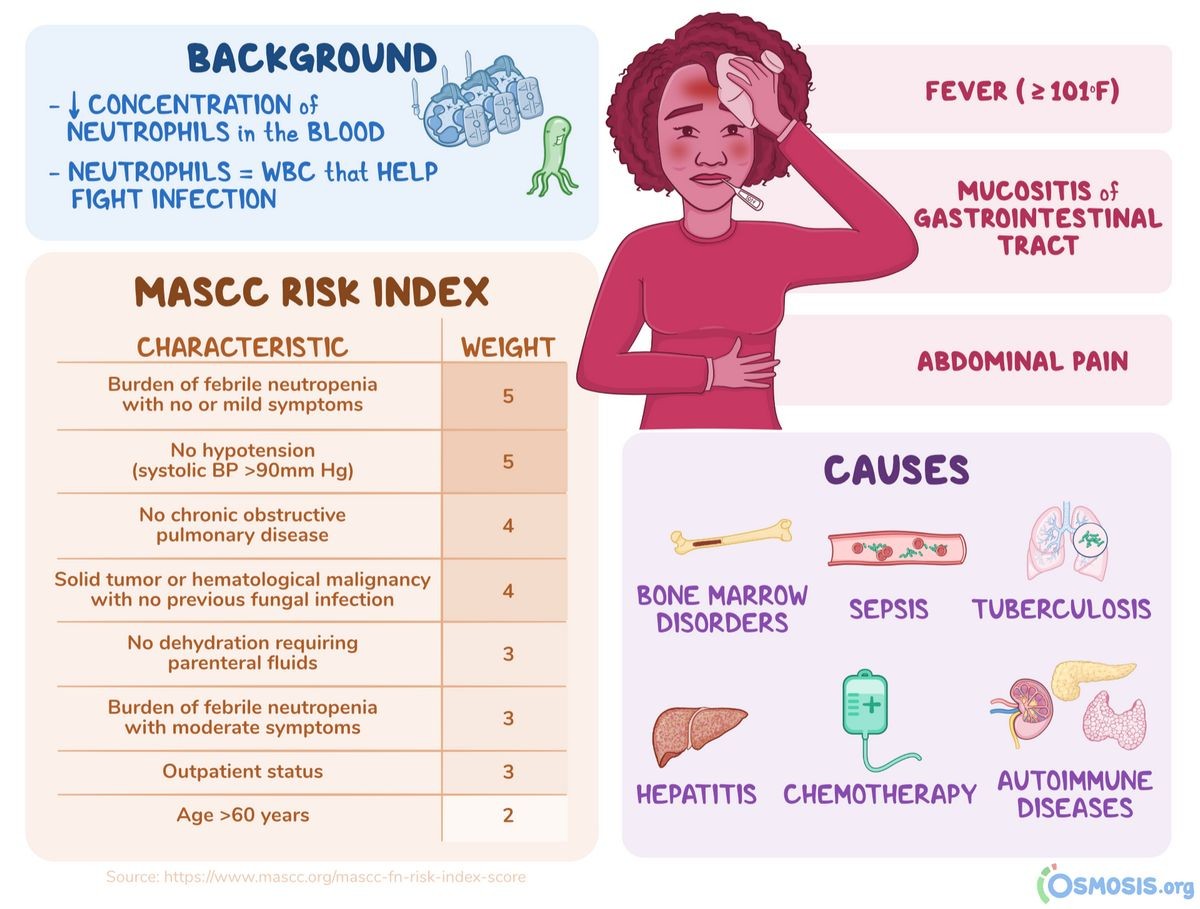
Contents
Causes of Neutrophil Abnormalities
Neutrophils are white blood cells (WBC) that fight infections. A high neutrophil count, or neutrophilia, can be caused by various physiological conditions and diseases. Typically, it indicates an active bacterial infection, although it can also be a result of blood cancer or leukemia. On the other hand, a low neutrophil count, or neutropenia, occurs when there are less than 1500 cells/mm3 of blood volume. Neutropenia affects the body’s infection-fighting ability and is often observed in viral infections.
Understanding Neutrophils
Neutrophils make up about 56% of total white blood cells. They are the soldiers that recognize and fight infections, either by consuming the infectious particle or releasing chemicals to kill it. Neutrophils have a short lifespan of a few days and are continuously produced in the bone marrow. Factors like age and environment can affect the number of neutrophils in the blood.
Here are the normal ranges for neutrophil count:
| 1500-800 cells/mm3 | 40-45% |
| 2500-6000 cells/mm3 | 40-60% |
| 0-5000 cells/mm3 | 0-5% |
Types and Common Causes of Neutrophilia
Neutrophilia can be classified into two types: true neutrophilia and shift neutrophilia. True neutrophilia is usually associated with bacterial infections, while shift neutrophilia occurs when cells shift from capillaries and organs to the blood. Shift neutrophilia is often transient and can be caused by factors like exercise, anxiety attacks, pregnancy, seizures, and meals.
The common causes of high neutrophil count include bacterial infections, exercise, anxiety attacks, pregnancy, seizures, meals, heart attack, bone fracture, septic arthritis, wounds, burns, accidents, appendicitis, increased cortisol and adrenaline levels, certain medications, and malignancy like leukemia.
Understanding Neutropenia and Its Causes
Neutropenia is characterized by a decreased number of neutrophils in the bloodstream, which impairs the body’s ability to fight off infections. It can be caused by factors such as medication side effects, suppressed immune system, underlying diseases like AIDS, tuberculosis, hepatitis, cancer and bone marrow diseases, nutrient deficiencies, autoimmune diseases, congenital disorders, and hypersplenism.
Neutropenia requires careful examination and relevant investigations to determine the appropriate treatment. While it is not always an emergency, it is advisable to seek proper medical advice.
Signs and Symptoms of Neutropenia
The symptoms of neutropenia vary depending on the underlying cause. Patients with bacterial infections may experience symptoms like localized swelling, enlarged lymph nodes, weight loss, weakness, and loss of appetite. Other signs include recurrent infections, dizziness, hypothermia, respiratory-related symptoms, skin rashes, wounds that don’t heal, abscesses, and swollen or painful joints.
Medical professionals usually perform a physical exam and a complete blood count (CBC) to assess white blood cell count and proportion of neutrophils to diagnose neutropenia and determine the underlying cause.
Remember to Seek Medical Attention
Neutropenia itself does not have specific symptoms and is often detected during infection. Infections in people with neutropenia can be severe and even life-threatening. It is important to seek immediate medical attention if you experience a high fever, abdominal pain, back pain, loose stools, rash, cough, breathing difficulty, sore throat, pain with urination, or unusual vaginal symptoms.
Treatment for neutropenia depends on its severity and the underlying cause. Mild cases may resolve on their own, while severe cases require proper medical diagnosis and tailored treatment.


